Matter & Chemical Change Section 1 Review
5.0(1)
Card Sorting
1/42
Last updated 11:29 PM on 11/22/22
Name | Mastery | Learn | Test | Matching | Spaced | Call with Kai |
|---|
No analytics yet
Send a link to your students to track their progress
43 Terms
1
New cards
chemical change
change that results when two or more substances react to create a different substance or substances; the new substances have completely different properties from the original ones
2
New cards
physical change
change in the appearance or state of a substance that does not change the composition
3
New cards
states of matter
refers to the three common states in which matter can exist: solid, liquid, and gas
4
New cards
melting
change of state from a solid to a liquid
5
New cards
evaporation
change of state from a liquid to a gas
6
New cards
freezing
change of state from a liquid to a solid
7
New cards
condensation
change of state from a gas to a liquid
8
New cards
sublimation
change of state from a solid to a gas
9
New cards
deposition
change of state from a gas to a solid
10
New cards
physical properties
property that describes the physical appearance and composition of a substance
11
New cards
ductile
description of a solid that can be stretched into a long wire
12
New cards
solubility
mass of a substance that can dissolve in a given amount of solvent to form a saturated solution at a given temperature
13
New cards
density
amount of mass in a given volume of a substance
14
New cards
element
pure substance that cannot be broken down into other substances; substance made up of only one type of atom
15
New cards
conductivity
ability of a substance to conduct electricity or heat
16
New cards
mechanical mixture
heterogeneous mixture; mixture in which the different substances that make up the mixture are visible
17
New cards
pure substance
substance made of only one kind of matter, which has a unique set of properties
18
New cards
suspension
cloudy mixture in which tiny particles of one substance are held within another, and the particles can be separated out
19
New cards
compound
chemical combination of two or more elements in a specific ratio
20
New cards
solution
homogeneous mixture; mixture of two or more pure substances that looks like one substance
21
New cards
colloid
cloudy mixture in which tiny particles of one substance are held within another and particles cannot be separated out from the other substance
22
New cards
malleable
description of a substance that can be pounded or rolled into sheets
23
New cards
matter
Anything that has mass and takes up space
24
New cards
chemical property
description of how a substance interacts with other substances, such as acids; chemical properties are observable only when a chemical change occurs
25
New cards
evidence of chemical change
1. Color Change from within
2. Production of gas or odor
3. Release or absorption of heat
4. Production of light or sound
5. Total loss of identity
2. Production of gas or odor
3. Release or absorption of heat
4. Production of light or sound
5. Total loss of identity
26
New cards
evidence of physical change
Evidence includes different shape, size, weight, length, or state or matter.
27
New cards
precipitate
A solid that forms from a solution during a chemical reaction.
28
New cards
Example of physical change
dissolving salt in water
29
New cards
Example of physical change
ice melting
30
New cards
Example of a chemical change
burning paper
31
New cards
Example of chemical change
adding a solid to a liquid and heat is produced.
32
New cards
Example of physical change
breaking chaulk into pieces
33
New cards
Example of chemical change
mixing two chemicals and a gas is produced
34
New cards
compressed gas
35
New cards
environmental hazard
36
New cards
toxic
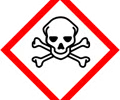
37
New cards
biohazard
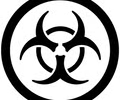
38
New cards
irritant

39
New cards
Exploding Bomb
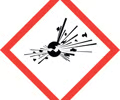
40
New cards
health hazard
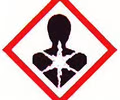
41
New cards
flammable
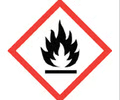
42
New cards
oxidizing
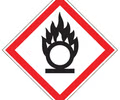
43
New cards
corrosive
